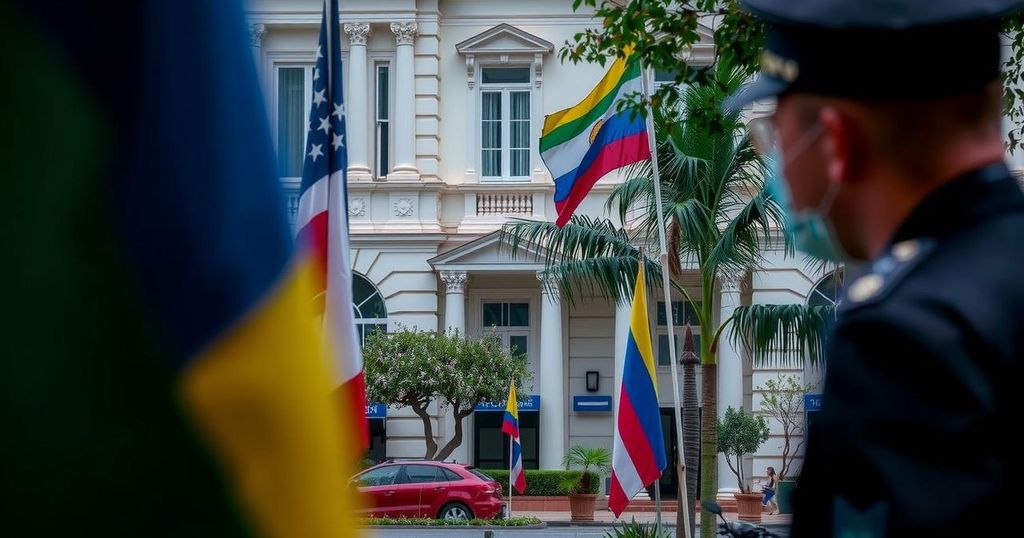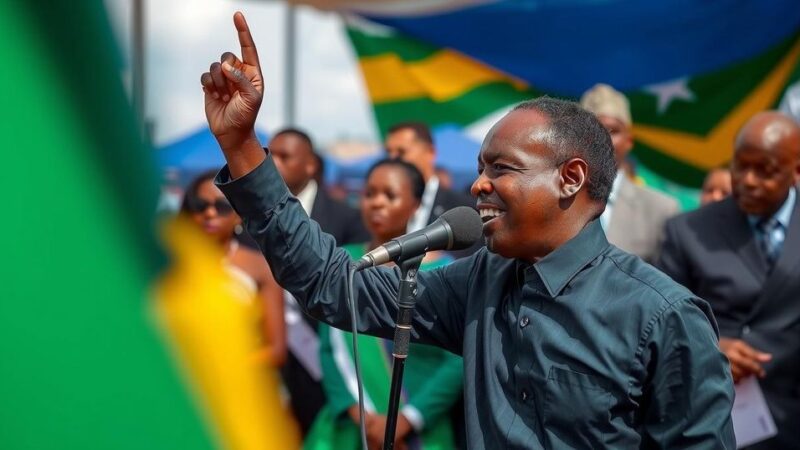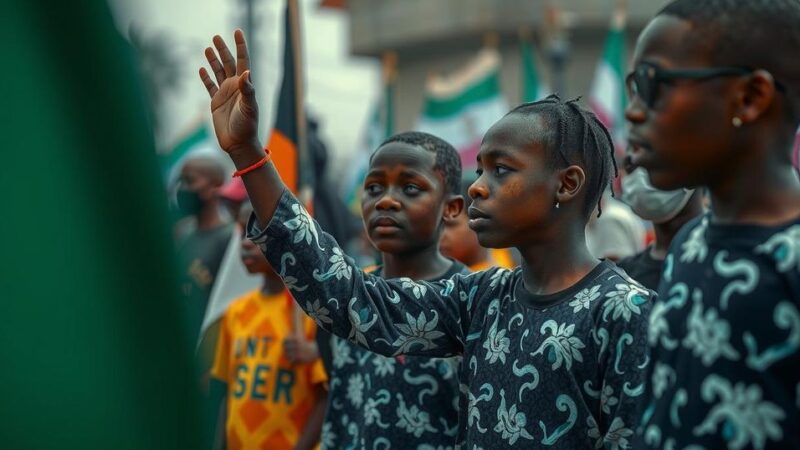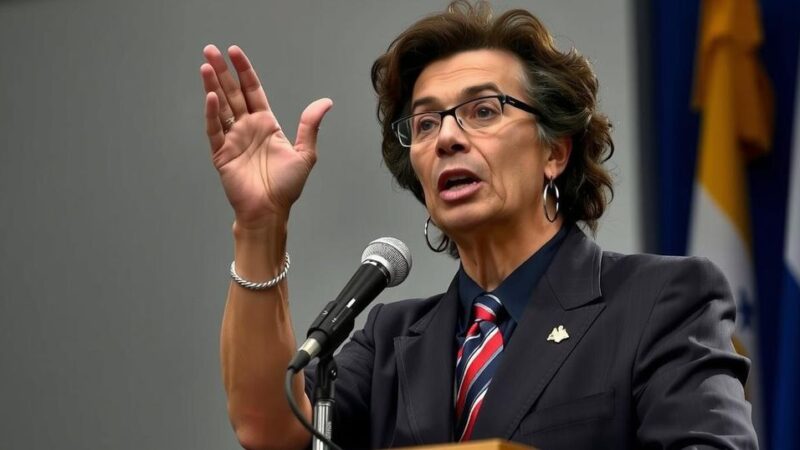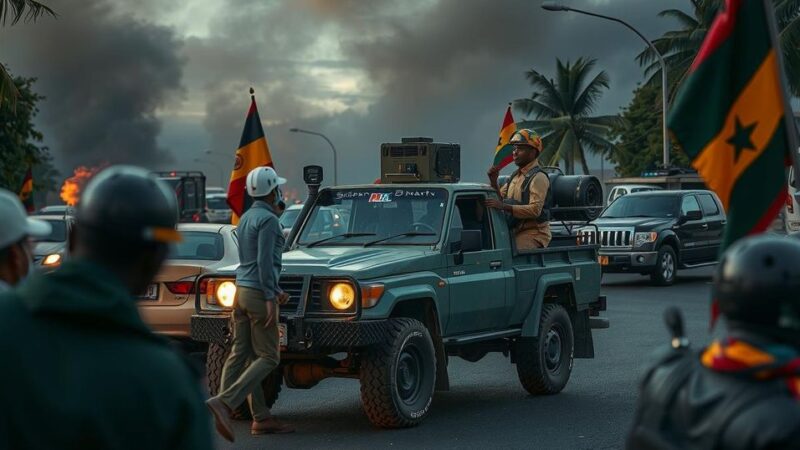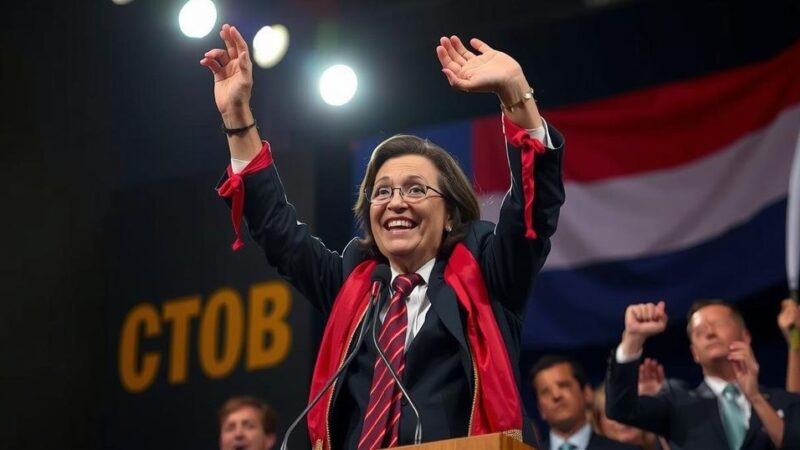Venezuela’s Interior Minister Diosdado Cabello denied claims from Argentina regarding harassment of its Embassy in Caracas, responding to accusations of a besiege following asylum requests from opposition members. He called Argentine President Javier Milei a “fascist” and criticized the handling of embassy security, as diplomatic tensions escalate over the political situation in Venezuela.
Venezuela’s Interior Minister Diosdado Cabello has publicly refuted allegations made by President Javier Milei’s administration in Argentina, asserting that the Venezuelan government is not besieging Argentina’s Embassy in Caracas. These statements emerged following claims from Argentina regarding a targeted harassment campaign against the diplomatic facility, where several associates of opposition leader María Corina Machado took refuge. Cabello criticized Milei, labeling him a “fascist” and dismissing the accusations as unfounded during a weekly press conference for the ruling Partido Socialista Unido de Venezuela.
Argentina’s Foreign Ministry previously condemned alleged acts of intimidation toward individuals granted asylum, insisting that Venezuela must provide safe passage for those within the Embassy. The situation has been exacerbated by reported power outages affecting the mission, to which Cabello sarcastically remarked, “Let them pay for the electricity, let them pay for the services, we are not going to give them anything for free.” Additionally, Cabello referred to Machado as a “terrorist,” underscoring her controversial status following her claims of electoral fraud during the recent presidential elections in Venezuela.
The backdrop of this diplomatic dispute involves ongoing tensions between Venezuelan authorities and the opposition, particularly surrounding the legitimacy of Nicolás Maduro’s presidency. In recent developments, Brazil, under President Luiz Inácio Lula de Silva, has stepped in to support Argentina’s diplomatic representation in Venezuela, despite Caracas initially permitting the reassignment of the Embassy. Lula’s administration does not recognize Maduro’s re-election, further complicating the regional geopolitical landscape.
The current diplomatic tensions between Venezuela and Argentina stem from the recent accusations of harassment concerning Argentina’s Embassy in Caracas. The backdrop includes a significant political dispute within Venezuelan politics, with opposition figures, particularly María Corina Machado, fleeing persecution amid allegations of electoral misconduct. The situation highlights Venezuela’s strained relations with neighboring countries, particularly under the current administration of President Nicolás Maduro, and the impact of this conflict on international diplomatic protocols and national sovereignty.
In summary, the dispute between Venezuela and Argentina centers around allegations of harassment towards an Argentine diplomatic mission in Caracas, with both governments holding conflicting narratives. Diosdado Cabello’s statements illustrate a broader context of political strife involving key opposition figures in Venezuela, which continues to escalate tensions within the region and complicate diplomatic interactions. As Brazil steps in to assist Argentina’s interests, the implications of these events will undoubtedly influence future relations in South America.
Original Source: www.batimes.com.ar
